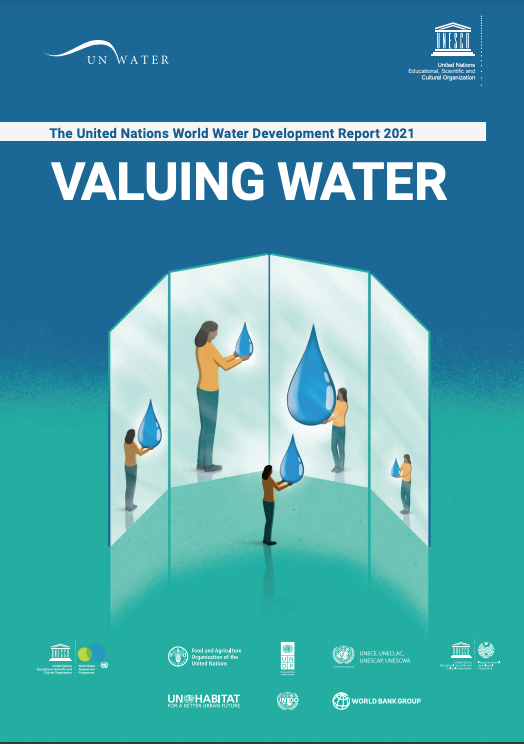UN World Water Development Report 2021
Published on by Water Network Research, Official research team of The Water Network in Non Profit
UN WORLD WATER DEVELOPMENT REPORT
21 March, 2021
Valuing Water
The current status of water resources highlights the need for improved water resources management. Recognizing, measuring and expressing water’s worth, and incorporating it into decision-making, are fundamental to achieving sustainable and equitable water resources management and the Sustainable Development Goals (SDGs) of the United Nations’ 2030 Agenda for Sustainable Development.
Those who control how water is valued control how it is used. Values are a central aspect of power and equity in water resources governance. The failure to fully value water in all its different uses is considered a root cause, or a symptom, of the political neglect of water and its mismanagement. All too often, the value of water, or its full suite of multiple values, is not prominent in decision-making at all.
Whilst the term ‘value’ and the process of ‘valuation’ are well defined, there are several different views and perspectives of what ‘value’ specifically means to various user groups and stakeholders. There are also different methods for calculating value and different metrics to express it.
Differences in the way water is valued occur not only between stakeholder groups but are widespread within them. These divergent perspectives on water value and the best ways to calculate and express it, coupled with limited knowledge of the actual resource, present a challenging landscape for rapid improvements in valuing water. It is, for example, futile to attempt to quantitatively compare the value of water for domestic use, the human right to water, customary or religious beliefs, and the value of maintaining flows to preserve biodiversity. None of these should be sacrificed for the sake of achieving consistent valuation methodologies.
Traditional economic accounting, often a key means of informing policy decisions, tends to limit water values to the way that most other products are valued – using the recorded price or costs of water when economic transactions occur. However, in the case of water, there is no clear relationship between its price and its value. Where water is priced, meaning consumers are charged for using it, the price often reflects attempts for cost recovery and not value delivered. Yet, regarding valuation, economics remains a highly relevant, powerful and influential science, even though its application needs to be made more comprehensive.
Nevertheless, the different values of water need to be reconciled, and the trade-offs between them resolved and incorporated into systematic and inclusive planning and decision-making processes. The way forward, therefore, will be to further develop common approaches to valuation where feasible, but also to prioritize improved approaches to compare, contrast and merge different values, and to incorporate fair and equitable conclusions into improved policy and planning.
The 2021 edition of the United Nations World Water Development Report (UN WWDR 2021) entitled ‘Valuing Water ’ groups current methodologies and approaches to the valuation of water into five interrelated perspectives: valuing water sources, in situ water resources and ecosystems; valuing water infrastructure for water storage, use, reuse or supply augmentation; valuing water services, mainly drinking water, sanitation and related human health aspects; valuing water as an input to production and socio-economic activity, such as food and agriculture, energy and industry, business and employment; and other sociocultural values of water, including recreational, cultural and spiritual attributes. These are complemented with experiences from different global regions; opportunities to reconcile multiple values of water through more integrated and holistic approaches to governance; approaches to financing; and methods to address knowledge, research and capacity needs.
Taxonomy
- Waste to Value
- Value
1 Comment
-
The American Society of Civil Engineers and The Value of Water Campaign also put out a USA-specific economic analysis in 2020 entitled "The Economic Benefits of Investing in Water Infrastructure". It is available at http://www.uswateralliance.org/sites/uswateralliance.org/files/publications/VOW%20Economic%20Paper_0.pdf
